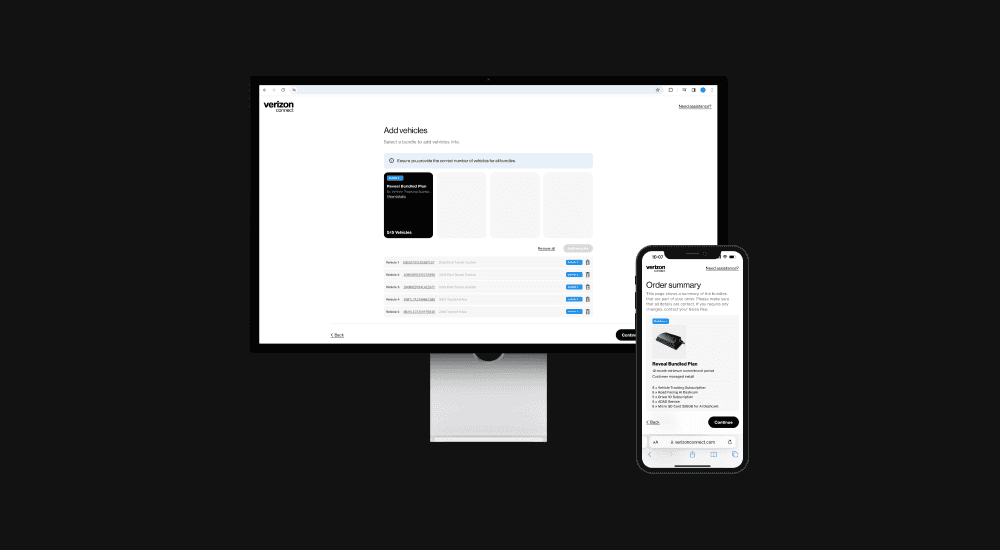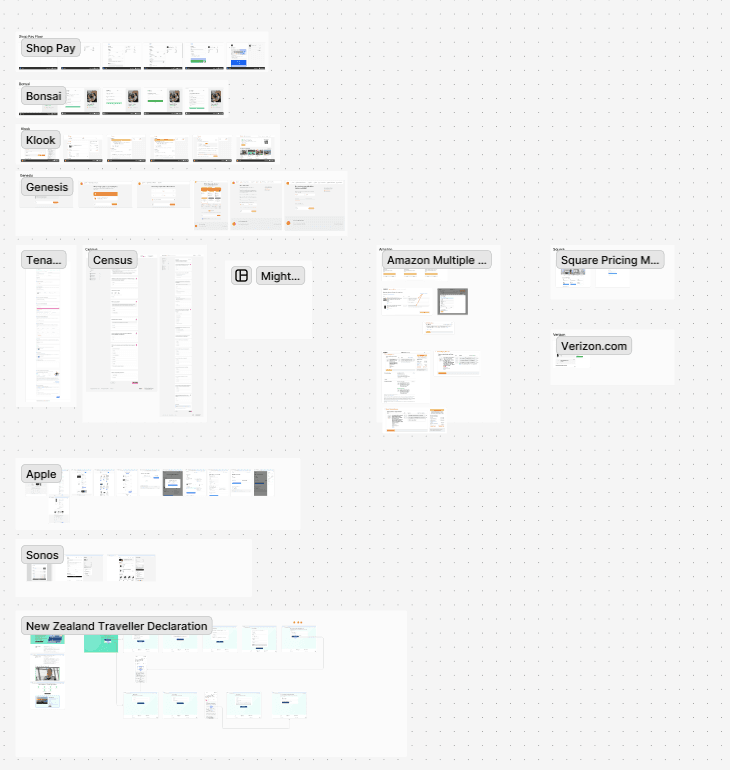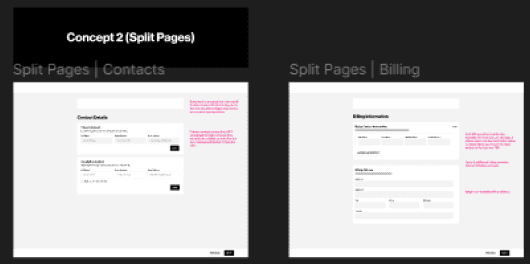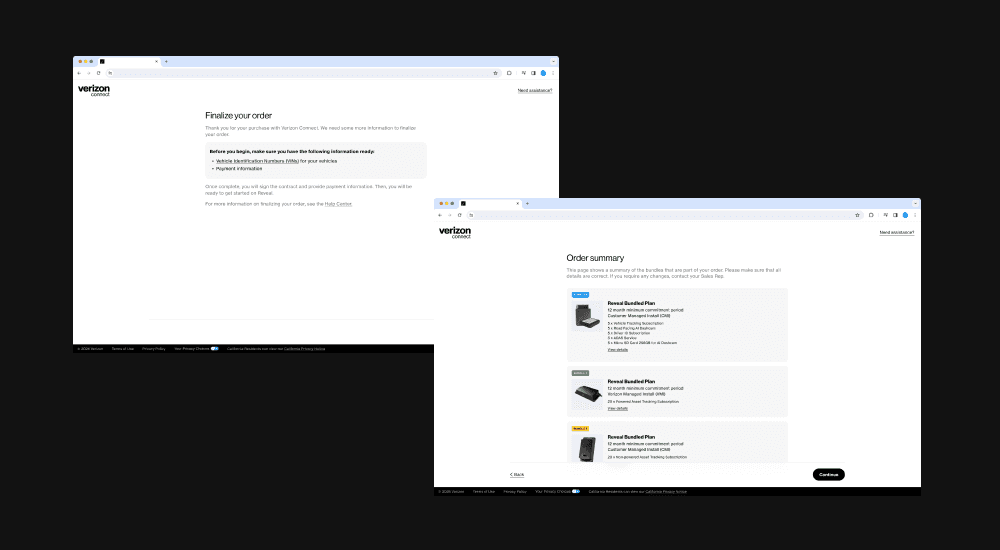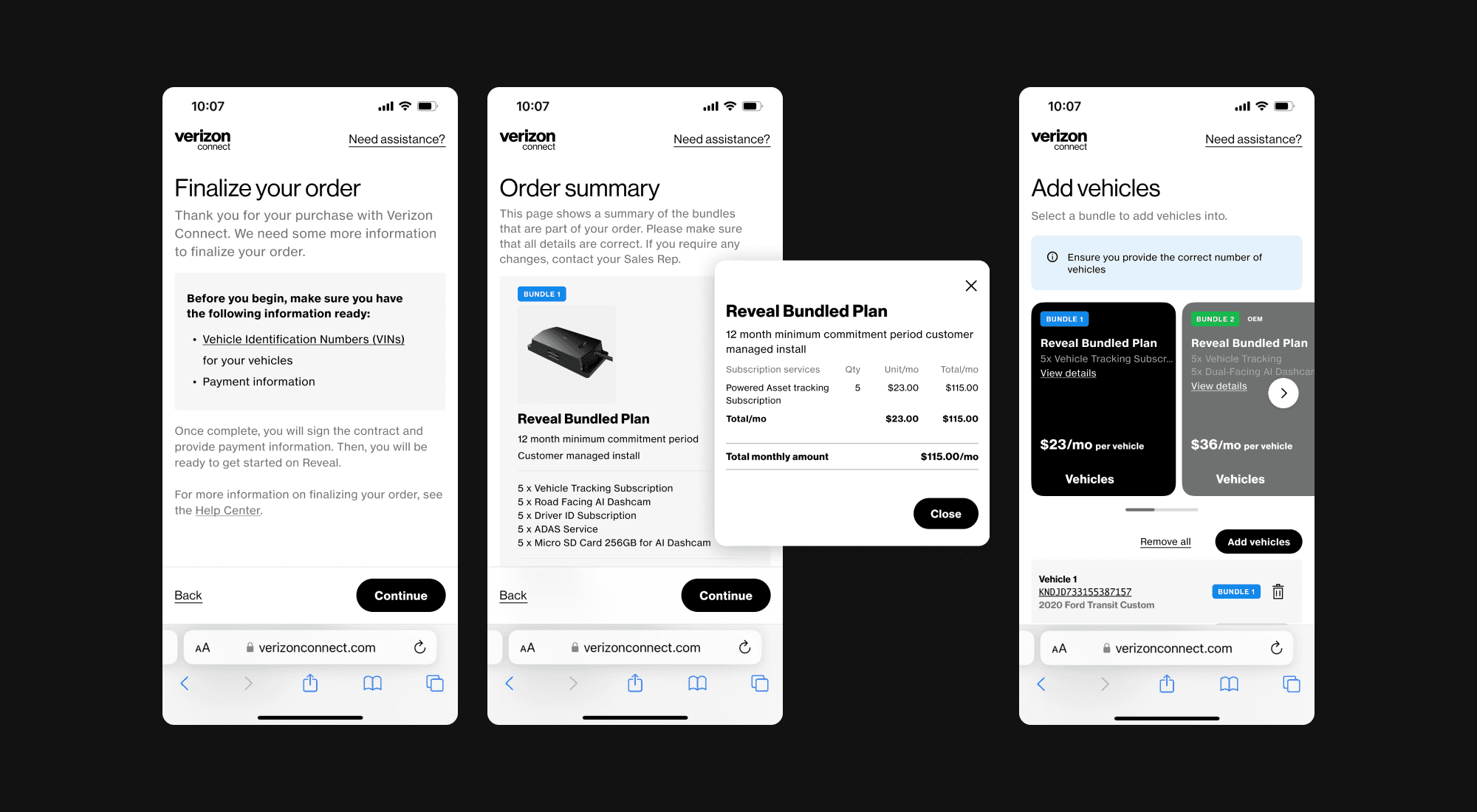Role
Lead Experience Designer
Responsibilities
Interface Design
Usability Testing
Design System
Prototyping
From a business standpoint, there's significant revenue potential from a customer-facing tool:
An average of $7,500 per month gained from shipping the correct hardware based on customer input.
An average of $32,000 per month in revenue gained by reducing unfulfilled orders by half..
We also need to consider the customer benefits as we're now putting the power predominantly in their hands. We see these benefits as:
• Streamlining and reducing friction in the VZC sales and order process.
• Simplifying the information gathering process.
• Increasing the speed at which customers are set up on the Reveal platform.
• Allowing the use of OEM hardware if applicable (built into their vehicles)
• Giving customers the ability to complete the order process at their own pace.
My first step was to analyse other products that achieve similar goals. While I had experience with sign-up portals and some ideas in mind, I wanted to take a step back and survey the landscape. I created a Figma file with screenshots of various companies' sign-up flows, including both customer order sign-ups and general web account forms, for inspiration and analysis. This research led us to draw significant insights from the Tenancy portal and the Census portal, particularly regarding their information gathering processes.
Throughout our project's lifespan, we have adopted personas and "fleetsonas" to consider when designing. Persona targets from our Verizon Connect Playbook focus on our "Josephs" (business owners) and "Larrys" (admins/managers) who might sign up their businesses with Verizon Connect. Fleetsonas are another crucial consideration. We need to think about the ultimate size of businesses that could be signing up, especially when it comes to inputting information about their vehicles. For this process, we're designing for all fleet sizes in the long term. Our first focus will be on fleet sizes under 150 vehicles.
Sitting down with the Product owners and stakeholders we got a better insight into the user journey, an other vital bits of information we'd need to consider as well as technical and time constraints, Aiming to get this out in an MVP approach by Q4 2024.
Above is one of the quickfire wireframes I designed up based off requirements, red text was considerations and comments I needed to take in for the ideation process.
Choosing between our two design systems was a significant decision. We have one for Reveal, our fleet management platform, and the Verizon design system for external-facing elements. The Digital Information Capture work sits somewhat in between these two systems. After careful consideration, we opted for the Verizon Design System. Key factors influencing this decision were:
It's customer-facing and aligns with existing Verizon branding
It offers a wider variety of components to work with
There are discussions about VDS potentially becoming the sole design system in the future
At Verizon, we have a dedicated research and testing team however, they didn't have the capacity to take on this project. Our initial release will be provided to a limited number of beta customers. We'll craft a user testing survey and gather feedback from these customers, allowing us to refine and build upon the product before its full release.
Working alongside our Product Owner and engineering team, we've taken a solid approach to web and responsive mobile design. Our work aligns with the Verizon Design System while complementing both our user journeys and goals.
As of November 2024 this work is being finished up for end of month release, The past couple weeks has been full of Design QA working alongside our engineers to make sure the build is staying on track with our Design implementation and Design System.
I hope to be able to update this in the future with analytics that can show our success in lowering monthly unfulfilled orders, correct hardware being shipped out, and increased customer engagement and moral signing upto the Reveal platform.
